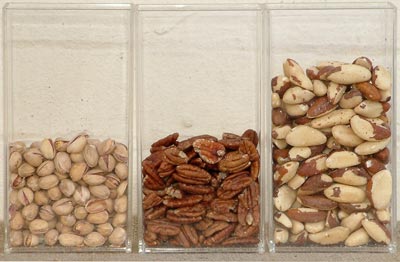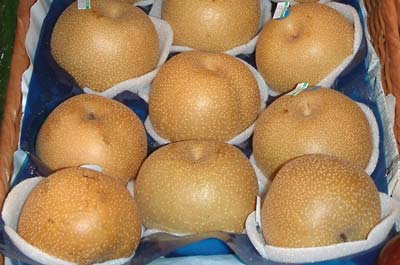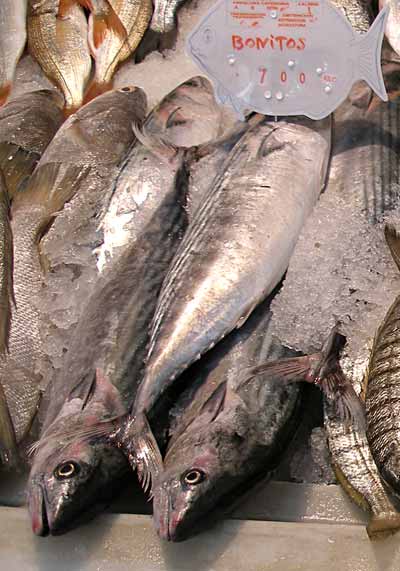
Technically, the pecan is a drupe rather than a nut, in keeping with all the hickories. A drupe is a fruit with a single stone held in a shell. Pecans have a rich buttery flavour and can be eaten fresh or in sweet or savoury dishes. It is a famous ingredient of pecan pie.
Described to me by Jeremy Sewell at Great Bay in Hotel Commonwealth in Boston as a crab found in the sun on the rocks, small but yielding with good, sweet meat. Before 1997 they were considered to be trash but are now considered to be a delicacy, They are probably shore crabs, which the French use mainly in soups.
Peking duck. A duck, marinated and hung until it is dry, and then roasted until crisp. It is then shredded and rolled by the diner into thin pancakes with julienne salad vegetables with a soy based sauce and then eaten with the fingers.

Asian pear. There are many varieties of this fruit. Essentially it is round, resembling a large yellow to russet-skinned apple, with a crunchy, grainy texture. It is juicy with an apple-like flavour. Best eaten slightly chilled. Good in fruit salads.

Bonito. A migratory fish which is available up to 25 lb (11.3 kg). Often sold as tuna, though it is not.
Pelican foot. A type of horn shell availably in the Mediterranean and the North Sea and good for flavouring soups.

The Whitefaced Woodland sheep originated in the South Pennines. It is also known as Penistone after the Yorkshire town where sheep sales have been held since 1699. It is thought to be closely related to the Swaledale and the Lonk. One of the larger of the English hill breeds, the breed has no wool free, white, face and legs. Both sexes are horned and the horns in the males are heavily spiralled.